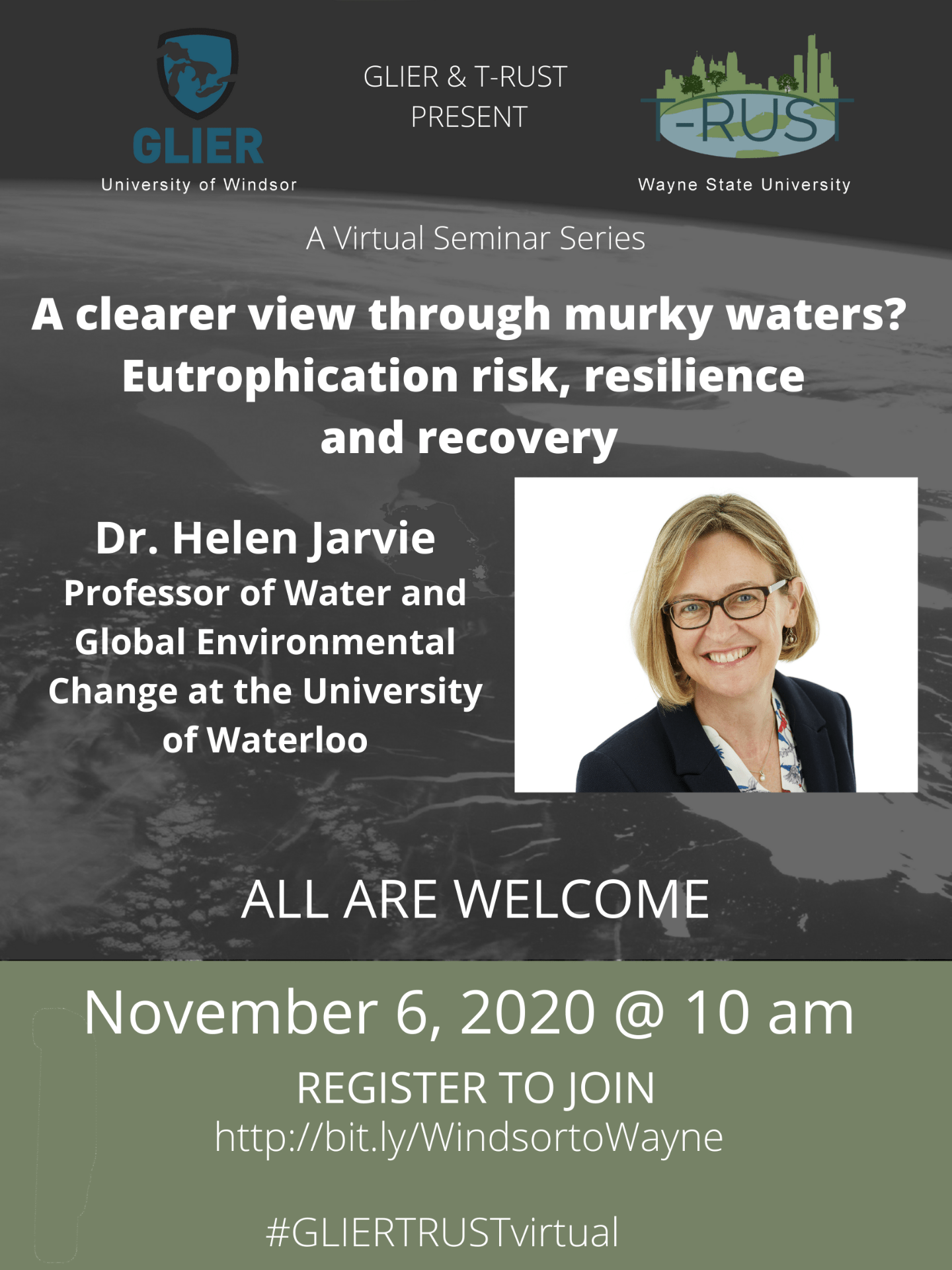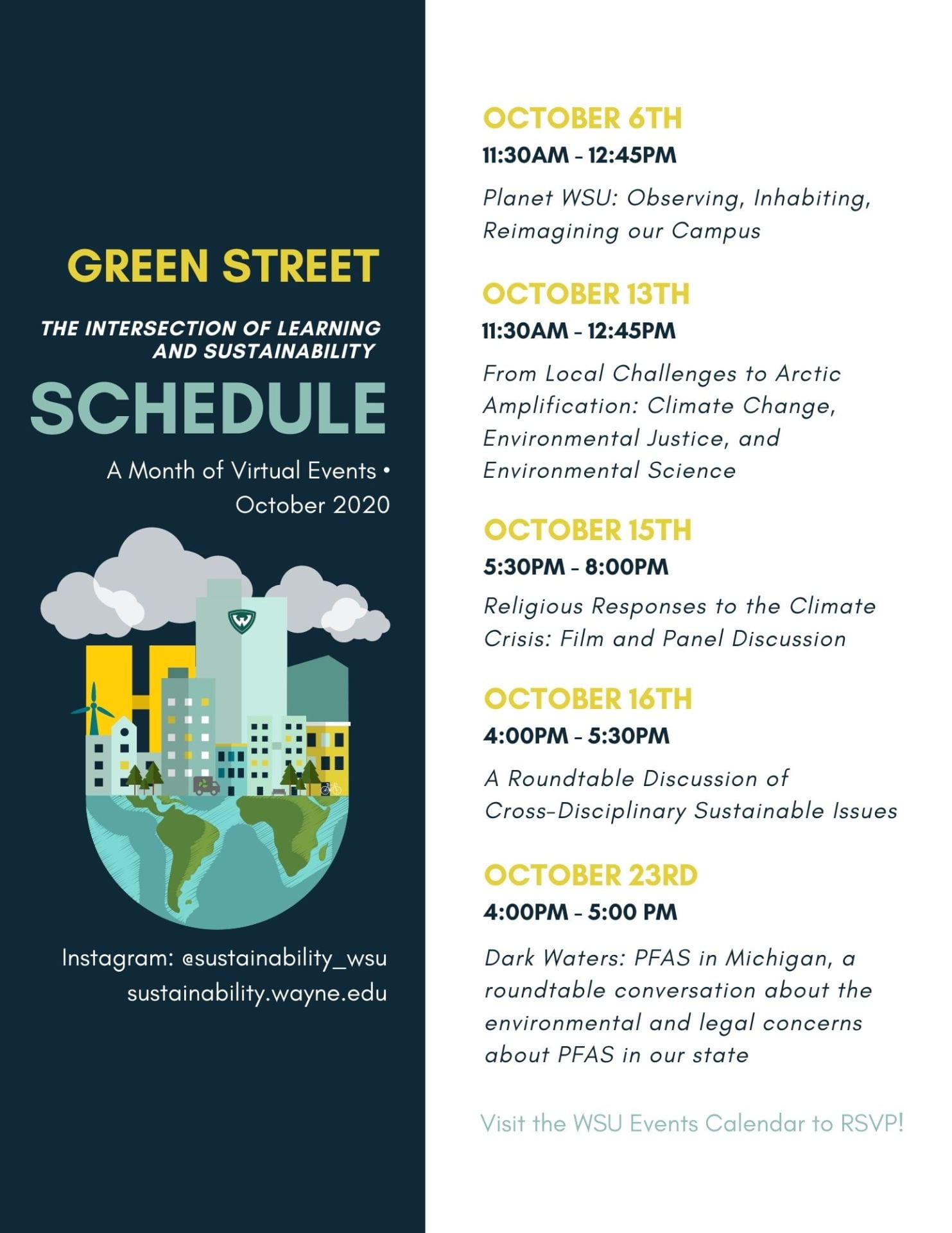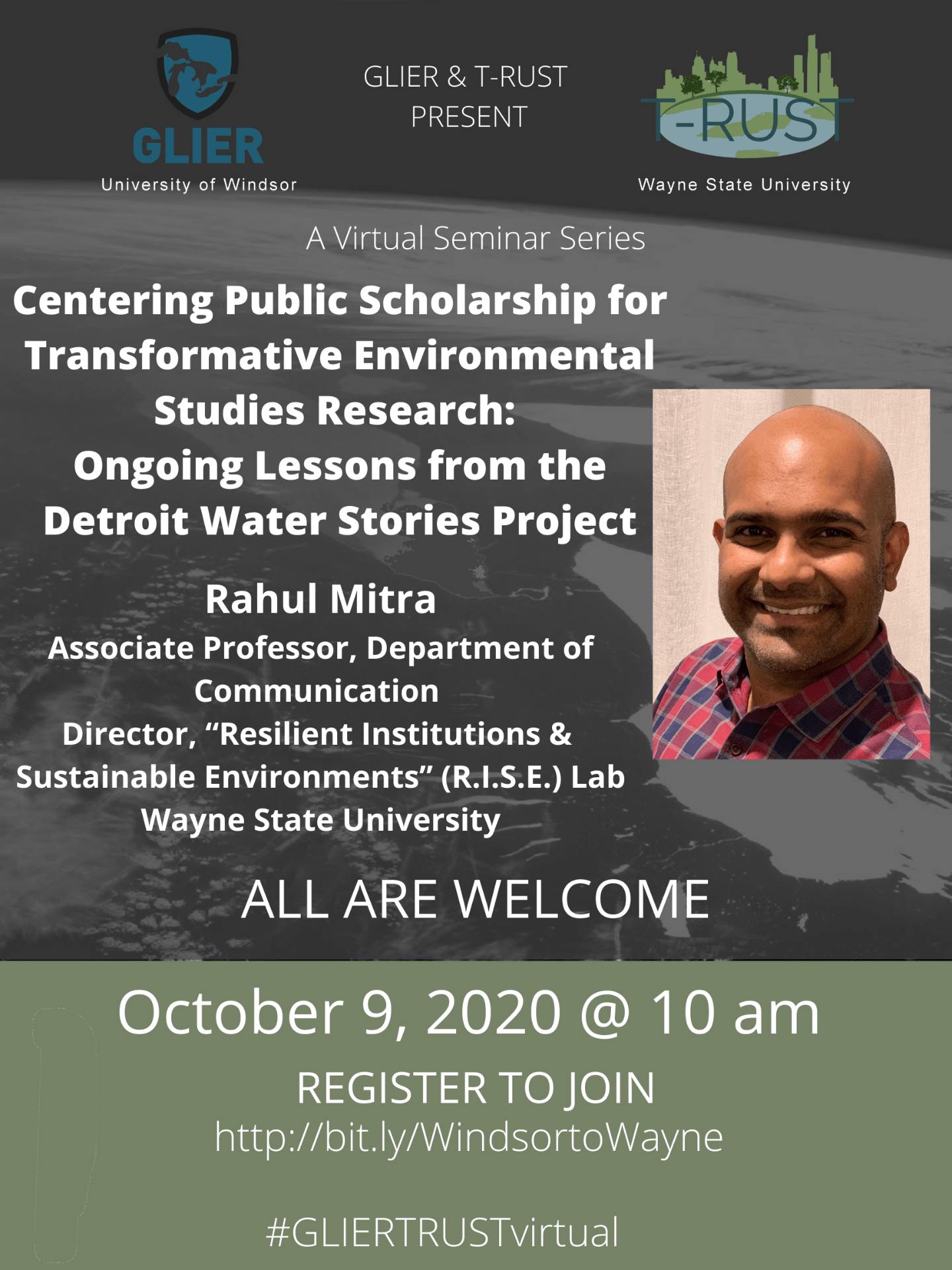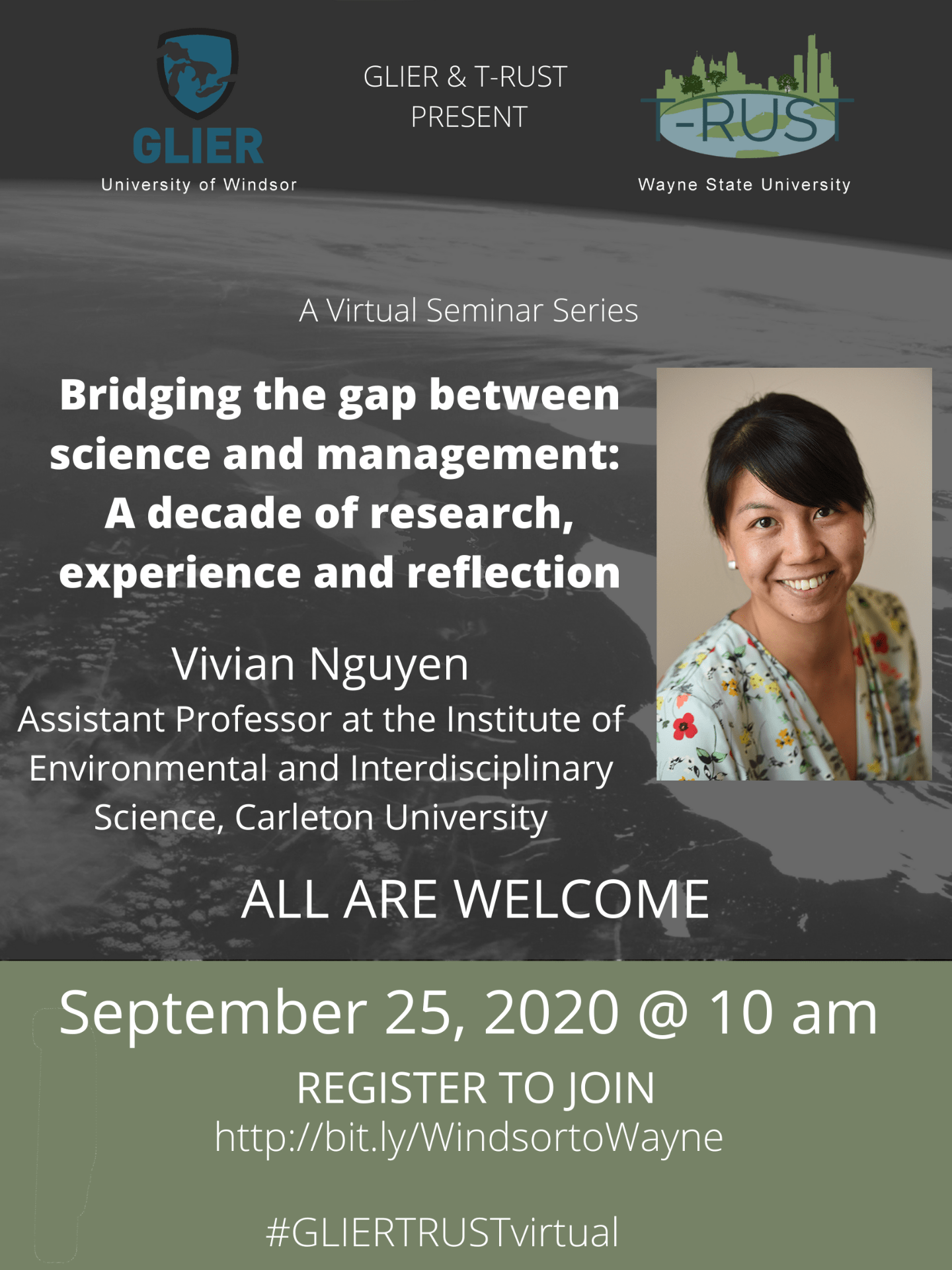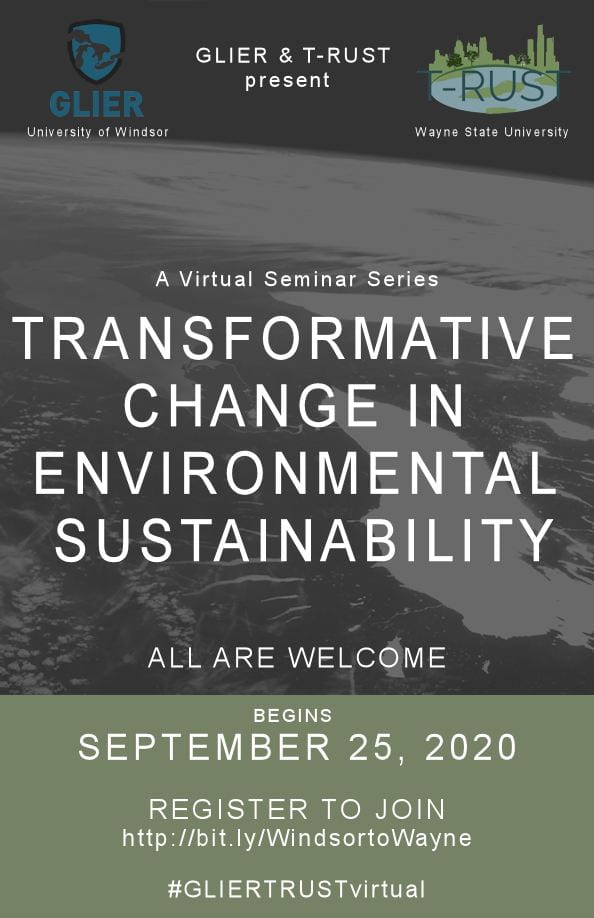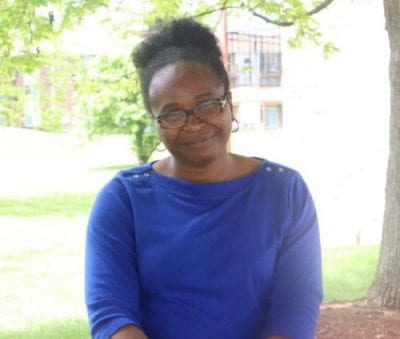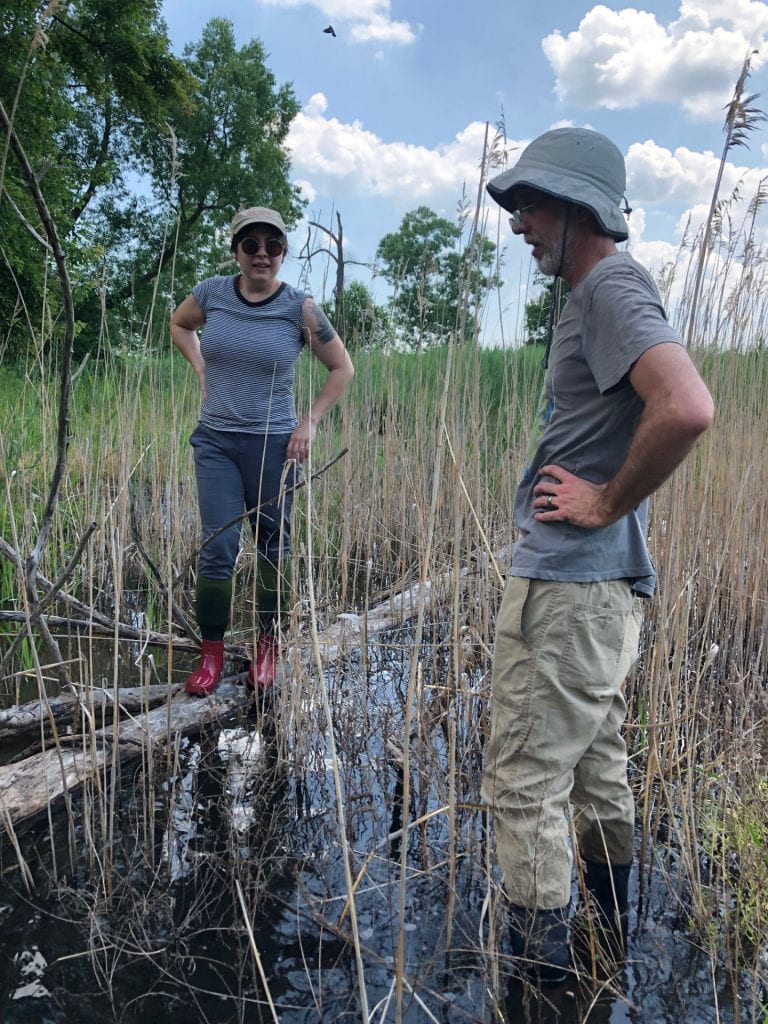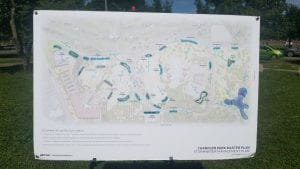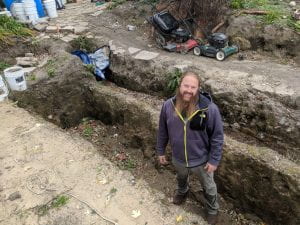This is part of an ongoing collaborative, student-led seminar series hosted by T-RUST (Transformative Research in Urban Sustainability Training) at WSU and GLIER (Great Lakes Institute for Environmental Research) at the University of Windsor. The seminar series is titled Transformative Change in Environmental Sustainability and occurs biweekly on Fridays at 10am.
Title: A clearer view through murky waters? Eutrophication risk, resilience and recovery
Speaker: Dr. Helen Jarvie, University of Waterloo
When: Friday, November 6, 10am
Where: Virtually on Zoom, register here: http://bit.ly/WindsortoWayne. The Zoom link will be sent to the email used for registration two days before the seminar.
Phosphorus (P) and nitrogen (N) are limiting nutrients for food production, yet we face an overabundance of P and N entering our rivers and lakes, from agricultural production and from wastewater discharges. This impairs water quality, undermines the health of aquatic ecosystems, and threatens water security. This seminar explores the challenges we face in eutrophication management. Changing patterns in nutrient use and management have led to a conundrum of simultaneous nutrient excesses and deficiencies, and the build-up of nutrient legacies in our watersheds, with varying residence times. The chronic release of P and N from these legacy stores may continue to impair river water quality for decades. Using the U.S. Western Lake Erie river tributaries as an example, we show how conservation measures designed to reduce nutrient losses from agricultural land may have inadvertently accelerated the accumulation of labile P at the soil surface and the losses of dissolved P, contributing to the ‘re-eutrophication’ of the western Lake Erie basin. In seeking solutions to eutrophication, there is a pressing need to better quantify nutrient sinks and sources in watersheds, and to ensure realistic expectations for mitigation strategies and timescales for recovery.
Helen Jarvie joined the Water Institute at the University of Waterloo, in January 2020, as Professor of Water and Global Environmental Change. Before relocating to Canada, Helen worked for the UK Centre for Ecology and Hydrology for 25 years. Helen’s research explores the drivers of eutrophication and water-quality impairment, from UK to global scales. She has particular interest in the sources and biogeochemical cycling of nutrients in rivers, and how safeguarding the functional integrity of rivers and watersheds can help build resilience in water-quality and water-resource security, within the context of climate variability and land-use change.
 Catch Up With T-RUST
Catch Up With T-RUST